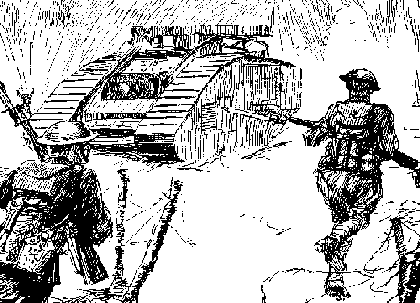Sunday, April 09, 2006
An interesting book I came across earlier...

To download the Text files so you can keep them on your computer for later reading:
PC: 'Right Click' on the link and select 'Save Link / Target As. . .'
MAC: ALT-Click to launch the Download Manager
Clarence W. Barron
From Wikipedia, the free encyclopedia
Clarence W. Barron (born July 2, 1855, in Boston, Massachusetts; died October 2, 1928) is one of the most influential figures in the history of Dow Jones & Company. As a career newsman described as a "short, rotund powerhouse," he died holding the posts of president of Dow Jones and de facto manager of The Wall Street Journal. He is considered the founder of modern financial journalism.
Contents
* 1 Early life
* 2 Dow Jones & Company
* 3 Legacy
* 4 Trivia
* 5 Books
* 6 Quotations
o 6.1 About financial journalism
o 6.2 About himself
o 6.3 From others
* 7 References
Early life
Barron graduated from Boston's Graduate English High School in 1873. He married Jessie M. Waldron in 1900 and adopted her daughters, Jane and Martha. Mrs. Barron died in 1918. After Jane married Hugh Bancroft in 1907, Barron became a prominent member of the Boston Brahmin Bancroft family. Today, the Bancroft family is the current majority shareholder of Dow Jones.
Barron worked at a number of newspapers throughout his life, including the Boston Daily News and the Boston Evening Transcript, the latter from 1875 to 1887. He founded the Boston News Bureau in 1887 and the Philadelphia News Bureau in 1897, supplying financial news to brokers.
Dow Jones & Company
In March 1902, he purchased Dow Jones & Company for $130,000, following the death of co-founder Charles Dow. In 1912, he appointed himself president, a title he held until his death and one which allowed him control of The Wall Street Journal.
He expanded the reach of his publishing empire by merging his two news bureaus into Dow Jones. By 1920, he had expanded the daily circulation of The Wall Street Journal from 7,000 to 18,750, and over 50,000 by 1930. He also worked hard to modernize operations by introducing modern printing presses and expanding the reporting corps.
In 1921, he founded the Dow Jones financial journal, Barron's National Financial Weekly, later renamed Barron's Magazine, and served as its first editor. He priced the magazine at 10 cents an issue and saw circulation explode to 30,000 by 1926, with high popularity among investors and financiers.
Legacy
After his death, his responsibilities were split between his son-in-law Hugh Bancroft, who became president of Dow Jones, and his friend Kenneth C. Hogate, who became the managing editor of the Journal.
They Told Barron (1930) and More They Told Barron (1931), two books edited by Arthur Pound and S.T. Moore, were published that showed his close connections and his role as a confidant to top financiers from New York City society, such as Charles Schwab. As a result, he has been called "the diarist of the American Dream." (Reutter 148) This has led to allegations that he was too close to those he covered; he supposedly urged the Journal to print and follow his personal credo, "The Wall Street Journal must stand for what is best in Wall Street."
However, Barron was renowned for pushing for deep scrutiny of corporate financial records, and is thus considered the founder of modern financial journalism. For example, in 1913, he gave testimony to the Massachusetts Public Service Commission regarding a slush fund held by the New Haven Railroad. His claim to fame came in 1920, when he investigated Charles Ponzi, inventor of the Ponzi scheme, for the Boston Post. His aggressive questioning and common-sense reasoning helped lead to Ponzi's arrest and conviction. [1]
Trivia
He published The Mexican Problem in 1917, juxtaposing the promise of Mexico's resources with the alleged lesser racial endowment of the Mexican people.
He helped endow the Clarke School for the Deaf with two million dollars, and proposed naming it the Coolidge Trust after President Calvin Coolidge and his wife Grace. (Roberts 225)
He was sued for defamation for $100,000 by Princess Margaret Nchika of Romania in April 1927, who said he called her a spy at a dinner. The suit was dismissed.
Books
* The Audacious War (1915)
* The Mexican Problem (1917)
* War Finance, As Viewed From the Roof of the World in Switzerland (1919)
* Twenty-Eight Essays on the Federal Reserve Act (unk.)
* My Creed (unk.)
* They Told Barron (1930)
* More They Told Barron (1931)
Quotations
About financial journalism
If we are live wires, we can so project financial truth that it will, at times, illumine the path of the investor. We should not usurp his prerogative of selecting, guessing or predicting but should steadily seek to illuminate his forward path.
You are in the field to defend the public interest, the financial truth for investors and the funds that should support the widow and the orphan.
About himself
I believe in service. I believe in the laws, in the happiness, in the mutuality of service. I know no other happiness, I know no other laws. There is no other happiness; there are no other laws. In The Wall Street Journal, I have sought to create a service. I have striven for a creation so founded in principles that it can live as a service--live so long as it abides in the laws of that service. I believe there is no higher service from government, from society, from journalism than the protection and upbuilding of the savings of the people. Savings in the United States may become investments, when guided by financial knowledge, more readily than in any other country of the world.
Wall Street steadily improves and increases its service to the whole country by reflecting the true position of American and world investments. The Wall Street Journal must stand for the best that is in Wall Street and reflect that which is best in United States finance. Its motto is: 'The Truth in its proper use.'
From others
No one worked harder than Mr. Barron in an effort to educate the people as to the real values of securities and finance in general. He exposed what was bad and exploited what was good. —William E. Hazen, author of Broad Street Gossip
C.W. Barron never ceased being a reporter, and perhaps some of the cubs hearing him refer to himself as 'a reporter' thought he was joking, but he preferred that title even though he was 'big chief.' —Oliver J. Gingold, longtime reporter for The Wall Street Journal
He was a master of finance, adamant in demands for accuracy to the last detail in a complicated financial situation. —Kenneth C. Hogate, former managing editor of The Wall Street Journal
References
* Extensive biography, heavily credited
* An anti-WSJ Larouchite news source
* Mention by Pulitzer Prizes
* News Luminary: Clarence W. Barron
* Columbia Encyclopedia entry
* Roberts, John B. Rating the First Ladies. ISBN 0806526084
* Reutter, Mark. Making Steel. ISBN 0252072332
Retrieved from "http://en.wikipedia.org/wiki/Clarence_W._Barron"
Category: American journalists
hewitt.mobi Posted at 3:15 pm |
1 comments
OK, My blondeness is showing... my eyes crossed after awhile..too eclectic for my cotton candy tastes. It sounds fascinating. and important. and learned. But, If I were suffering from insomnia, this would cure me.
1 Comments:
Thanks for visiting my blog, Charlie! Sounds like all is well with you, glad to "hear".
As for my family, yeah,one of my young'ins had Strep Throat...nasty bug. All is OK now..thanks to med's. *whew!!*
Weather is gorgeous! Spring has sprung.
Been busy too. Joined a group that is forming to educate the town on life threatening food allergies and we are going to try to force our schools to bann peanut products. It's an important issue and I'm glad I'm on the ground floor with this movement. Ignorance is dangerous! Especially for our children.
So, it's been keeping me busy and I find that I don't make the blog rounds as faithfully as I used to. Guess things go in cycles. But then you know that *grin*
Happy early Easter, Charlie!!!!
M






